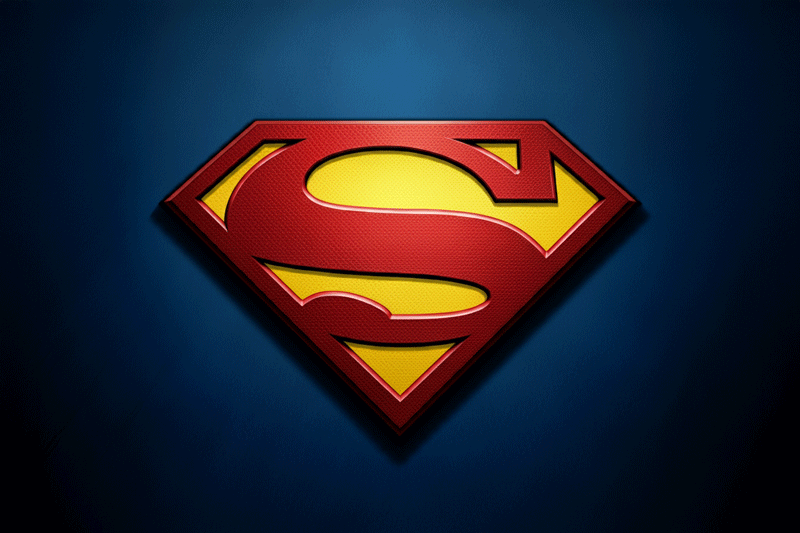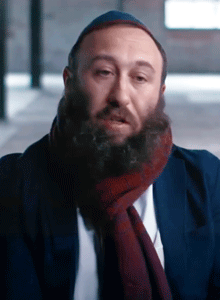Chanukah came early for me this year with the release of James Gunn’s Superman trailer. Superheroes have always soared through our imaginations, but lately, they’ve landed squarely in the world of mental wellness. As a rabbi, comic book aficionado (once called “New York’s Hippest Rabbi” back when Netflix still mailed DVDs), and a neurodivergent dadvocate, I’ve spent years exploring how the epic tales of caped crusaders and masked vigilantes can teach us resilience, vulnerability, and self-discovery.

Growing up in Manchester, England, as a shy kid occasionally facing antisemitism, I found comfort in comic books. Superheroes weren’t just stories—they felt like allies, helping me navigate challenges. These early connections inspired my first book, Up, Up, and Oy Vey!, which explores how Jewish immigrants—juggling their own dual identities—created many of the superheroes we love today.
Now, as a parent of a child on the autism spectrum and someone diagnosed with ADHD as an adult, my connection to superheroes has grown even deeper. What began as personal inspiration has transformed into therapeutic tools, as professionals like Dr. Janina Scarlet use superhero narratives to address anxiety, trauma, and depression. It’s no surprise—comic books often tackle heavy themes under the guise of light-hearted entertainment.
Lessons from Superheroes
As a family peer advocate, my love of superheroes has become a powerful way to support others while helping myself. By reframing personal struggles as part of a larger hero’s journey and blending lived experiences, evidence-based insights, and a lifelong passion for geek culture, I created a training called Mental Health Awareness Through Superheroes. I was thrilled to present it at the National Federation of Families Annual Conference and the University of Youth Power, a youth-led leadership event organized by Families Together in NYS. Seeing how these ideas resonated with others was a true highlight—it felt like we were all suiting up for our own heroic journeys.
Masking and Kryptonite: Embracing Vulnerability
Superman’s “disguise” is Clark Kent—a persona he adopts to fit into a world that doesn’t fully understand him. For many neurodivergent individuals or those facing mental health challenges, this concept of masking feels all too familiar. While masking can help us meet societal expectations, it often leads to emotional exhaustion and isolation.
Then there’s Kryptonite—Superman’s ultimate weakness. It’s easy to see it as a flaw, but it’s also a reminder of his humanity. Don’t we all have our own Kryptonite? Those struggles that make us feel exposed or vulnerable? But here’s the truth: facing those challenges can lead to our greatest strengths. As Christopher Reeve, the legendary Superman himself, once said, “A hero is an ordinary individual who finds the strength to persevere and endure despite overwhelming obstacles.” It’s a reminder that we don’t need superpowers to rise above—we just need the courage to show up as our true selves.
Becoming the Hero of Your Story
Superhero stories, especially when viewed through a therapeutic strength-based lens, can inspire us to confront challenges and grow through adversity. Research shows that engaging with these narratives can help build emotional strength and coping skills, especially in young people.
Journaling can do something similar—it helps us reframe our experiences through a heroic lens, reminding us of our resilience and capability. Reflecting on my own journey from “Dad in Denial” to “Dadvocate,” I see how much superhero metaphors have shaped me. They’ve helped me process my struggles and given me tools to support others.
Superman’s Unique Legacy
Cartoonist and author Jules Feiffer once said, and Quintin Tarantino later echoed in Kill Bill, that Superman is unique among superheroes. Unlike Batman or Spider-Man, who don masks to become their alter egos, Superman is Superman. His mask is Clark Kent—a façade he uses to navigate a world that doesn’t fully understand him.
This role reversal highlights Superman’s uniqueness and the challenge of trying to belong, connect, and protect while carrying the weight of his vulnerabilities. And isn’t that what makes him remarkable? Superman isn’t just about capes and strength—but the courage to navigate a world that doesn’t always understand him.
As I look ahead to director James Gunn’s upcoming Superman, I hope his vision captures these essential truths. And James—if you’re reading this—tickets to the premiere wouldn’t hurt! But more importantly, I hope your Superman reminds us, as he always has, that our Kryptonite doesn’t weaken us. It makes us human. Cape is optional!
Simcha Weinstein is a best-selling author, syndicated columnist, and the DEI and Community Engagement Coordinator at Families Together in New York State. Simcha is also the founder of the Jewish Autism Network, a grassroots initiative, and serves as a state lead for NYADD, the New York Alliance for Developmental Disabilities. Dubbed “New York’s Hippest Rabbi” by PBS, he lives in Brooklyn, New York.




